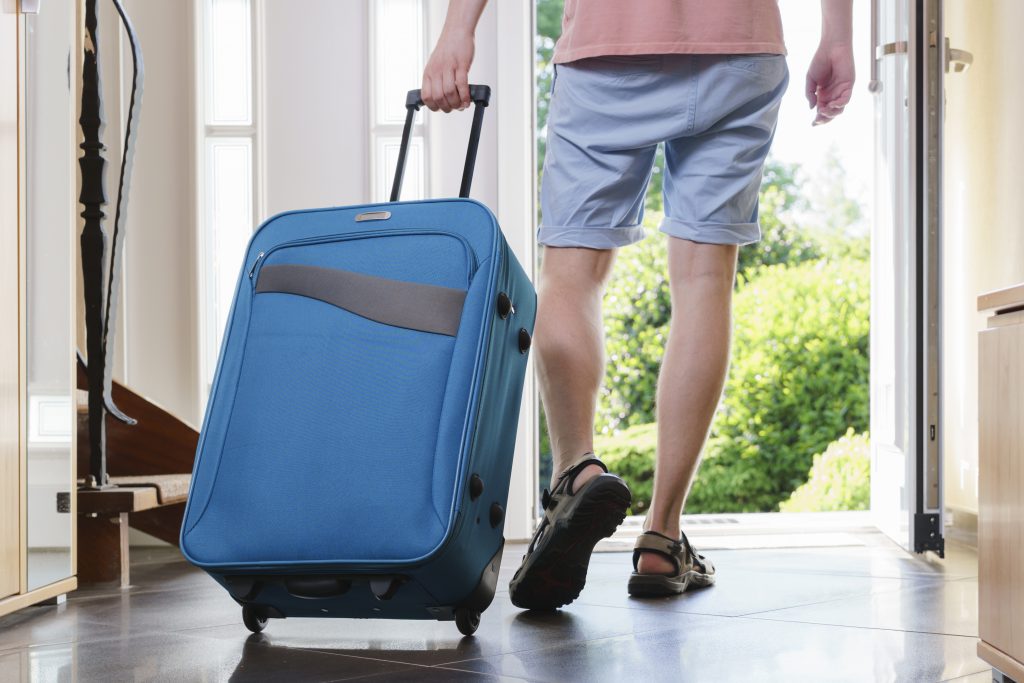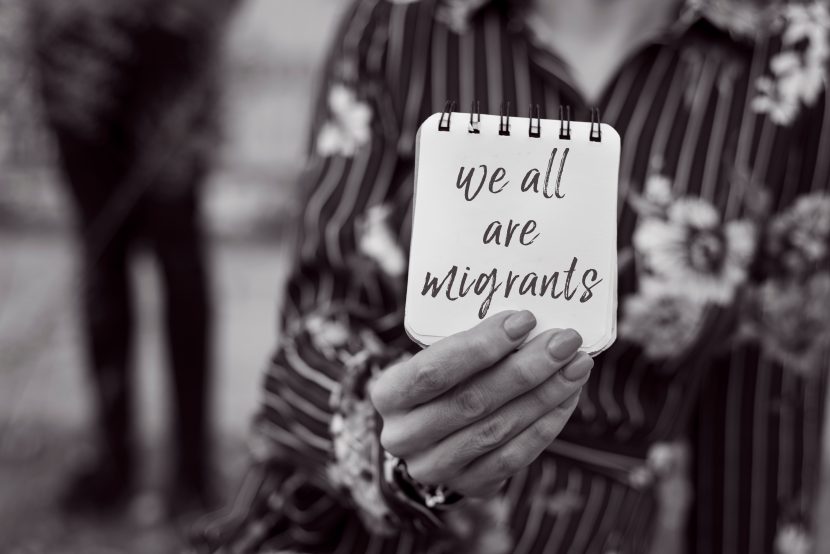The International Day of Migrants offers a key moment to spotlight migrating people around the world; as well as the inequalities upon which human movement is posited. Humanium considers that the plight of people who are forced migrants and refugees should be at the centre of our work towards a better future.
What is the International Day of Migrants?
The International Day of Migrants on 18th December falls amongst the United Nations’ ‘international days’ with the aim of: “creating more dialogues and interactions within countries and regions, as well as propelling experience exchange and collaboration opportunities” (United Nations, 2019). Migration has no universal or legal definition, thus encompassing all of human movement and making us all migrants. Within the framework of international migration, forced displacement is a key issue which disproportionately impacts women and children, making it something particularly close to our hearts, minds and actions here at Humanium.
Migration Statistics Summarised (UNHCR)
- There are about 272 million international migrants worldwide;
- 80% of refugees live in countries that neighbour their country of origin;
- Out of 70.8 million forcibly displaced people worldwide;
- 58.3% are internally displaced
- 36.5% are refugees
- 4.9% are asylum seekers
- The top refugee-hosting countries are, in order: Turkey, Pakistan, Uganda, Sudan and Germany;
- 38 million international migrants are under 20 years of age;
What we talk about when we talk about migration
The warped and confused radicalised terminologies denoting ‘migrant’, ‘refugee’, ‘economic migrant’, ‘climate migrant’, ‘climate refugee’, ’asylum seeker’, ‘forcibly displaced’ can sometimes serve to weaken our ability to speak meaningfully outside of labels and stereotypes.

As collective as the terms ‘migrant’ and ‘refugee’ may seem – at their first utterance a recognition must be made for the diversity and lack of unity which such sorely limited terms inherently denote. Without doubt, in the face of flawed and dehumanising ways of understanding phenomenons of refuge and forced migration, the best term to adopt is ‘people’.
In spite of corporate European media’s too-often unhelpful coverage of what has become known as the ‘migrant crisis’, migration is not in and of itself a problem – it is a search for a solution. At Humanium, we believe in the right of all people to freedom of movement and freedom to migrate, particularly to preserve safety and wellbeing. Each human deserves to have the right to leave their country and enter another country, as many people attempt to flee global inequality which has contributed towards untenable situations in their places of origin (Guardian, 2019).
The flawed legal framework of international migration
At the local, national and international levels there exist a plethora of mechanisms which form the legal paradigm within which migration takes place. A legal framework of criminalisation of the human movement of forcibly displaced people has been erected, as we can see with the ‘walls’ both physical and judicial in the USA and Europe. Human beings and their movement have become as ‘illegal’ leading to mass detentions, destitution and forced displacement – just as efforts of accommodation and solidarity are being made as well (see Humanium’s blog articles on the detention of migrant children, part 1 and part 2). Although there are powerful reasons for hope and aspiration for a better world for migrating people, we must not cease to keep moving towards a more fair migration context.

Furthermore, in the face of the global climate emergency there exists no framework to accommodate the millions of people who will be (and are being) displaced by climate disasters. Climate refugees have no legal status internationally nor, in most cases, within national frameworks leaving them vulnerable and largely unable to access their rights. Since sustainable development and humanism comprise central columns of Humanium’s ethical principles, we consider the improvement and development of the legal framework on migration to be one of key steps towards a better and safer future for children around the world, with an Additional Protocol III to the Convention on the Rights of Refugees 1951 which explicitly addresses the predicament of climate refugees, being surely one of the most pertinent solutions.
As an organisation for the promotion and fulfilment of children’s rights, Humanium always centres the laws and rights of people at the core of our humanitarian strategy. For example, Humanium runs an online helpline where we do our utmost to give tailored guidance and advice on children’s rights around the world. For this reason, then, the understanding of the laws surrounding migration is integral to addressing the monumental human impact it exacts.
Inequalities of migration and the climate emergency
The inequalities erected throughout our global society shape human movement. The ability to cross borders dictates who has the right to access which spaces and move where. The life we are born into, nationalities (or lack of), and socioeconomic circumstances dictate the ways in which migration happens. Whether we choose to move or are pushed to; whether we go around the world for jobs, holidays and travel, or whether we are internally displaced for decades within our own borders.
Another source of inequality, the climate emergency is something which overwhelmingly affects people who are financially poor, and severely limits their ability to move from dangerous to safe spaces. Our right to move is intimately linked with our right to space, and to exist safely and in full wellbeing in the planet upon which we reside. By celebrating the International Day of Migrants we can take time to reflect upon the meaning, implications and lived realities of migration, and use it as a springboard to take effective action.
Consider contributing towards the fulfilment of children’s rights around the world by participating in Humanium’s efforts to protect these rights. You can make a donation, become a Humanium member and joining the Humanium community, where we are working to make the world a better place.
Written by Josie Thum
Citations
Maya Goodfellow, Podcast: ’A dizzying maze: how the UK immigration system is geared to reject’, The Guardian’s Audio Longreads (The Guardian, 2019).
UNHCR, ’Figures at a glance’ (UNHCR, 2019), retrieved from: <https://www.unhcr.org/ph/figures-at-a-glance>, accessed 29.11.2019.
United Nations Events, ’International Migrants Day’ (United Nations, 2019), retrieved from: <https://www.un.org/en/events/migrantsday/>, accessed 29.11.2019.
United Nations News, ‘The number of international migrants reaches 272 million, continuing an upward trend in all world regions, says UN’ (United Nations, 2019), retrieved from: <https://www.un.org/development/desa/en/news/population/international-migrant-stock-2019.html>, accessed 29.11.2019.
World Health Organisation, ’International Migrants Day’ (2019), retrieved from: <https://www.who.int/life-course/news/events/intl-migrants-day/en/>, accessed 29.11.2019.


